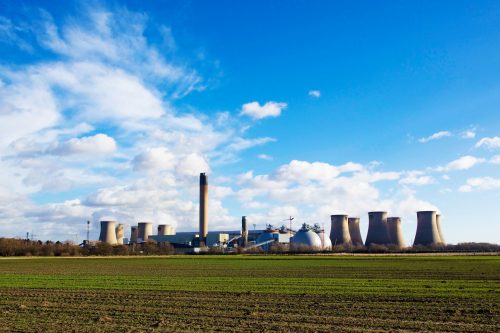Pivotal period for Drax, with CO2 emissions slashed by over 90%

Energy business Drax has reported adjusted EBITDA from continuing and discontinued operations as up £7m to £186m (H1 2020: £179m) in its half year results for the six months ended 30 June 2021.
It has also recorded pre-tax profits of £52m (2020: £85m loss) and operating profit of £84m (2020: £57m loss) along with adjusted revenues of £2.2bn (2020: £2.1bn).
Selby-based Drax says it has a strong liquidity and balance sheet, with £666m of cash and committed facilities at 30 June 2021.
Once the biggest coal fired power station in Western Europe, Drax notes it has cut its CO2 emissions from power generation by over 90% since 2012.
Using sustainable biomass and hydro, in the first half of 2021 Drax became a purely renewable power generator, producing 12% of the UK’s renewable electricity – enough to power over five million homes and support the deployment of intermittent renewables such as wind and solar.
And by deploying bioenergy with carbon capture and storage (BECCS) at the power station, Drax now says it is set to go further – generating the negative emissions needed to meet the UK’s net zero climate target.

Will Gardiner
Will Gardiner, CEO of Drax Group, said: “We have had a great first half of the year, transforming Drax into the world’s leading sustainable biomass generation and supply company as well as the UK’s largest generator of renewable power by output.
“The business has performed well, and we have exciting growth opportunities to support the global transition to a low-carbon economy.
“Drax has reduced its generation emissions by over 90%, and we are very proud to be one of the lowest carbon intensity power generators in Europe – a huge transformation for a business which, less than a decade ago, operated the largest coal power station in Western Europe.
“In the past six months, we have significantly advanced our plans for BioEnergy with Carbon Capture and Storage (BECCS) in the UK and globally.
“By 2030 Drax could be delivering millions of tonnes of negative emissions and leading the world in providing a critical technology needed to tackle the climate crisis.
“We are pleased to be announcing a 10% increase in our dividend, and we remain committed to creating long-term value for all our stakeholders.”
Andy Skelton, CFO at Drax, said these advances, including the sale of the company’s gas generation assets and running down of its coal burning operations, had been made despite the challenges of the pandemic, adding: “We’ve had an excellent first half of the year, financial and operational performance has been good.
“We’ve had a really robust supply chain throughout Covid. Covid mainly impacted on our customer business, but that has performed a lot better in the first half of this year and it is on track to return to profitability.”
He said the so-called nation-wide “Pingdemic” has not had a serious impact on the company’s operations and that Drax can look forward to further supporting the UK’s drive towards its net zero carbon ambitions over the next six months.
Skelton said that in the first half of the year Drax progressed its plans for BECCS – selecting Mitsubishi Heavy Industries (MHI) as its technology partner and kickstarting the planning process to develop BECCS at Drax this decade.
It also started to explore overseas opportunities for BECCS with Bechtel, including in North America, and next generation BECCS technologies with Phoenix BioPower, creating further potential opportunities for the UK to export a critical technology that will be needed around the world.
Subject to the right Government support, the first BECCS unit at Drax Power Station could be operational in 2027 with a second in 2030, permanently removing at least eight million tonnes of CO2 from the atmosphere each year.
It would be the world’s largest carbon capture power project, delivering a significant proportion of the negative emissions the UK needs to meet its climate targets.
As previously reported, Drax has also secured additional biomass production capacity and reduced costs through the acquisition of Canadian biomass producer Pinnacle Renewable Energy Inc.








